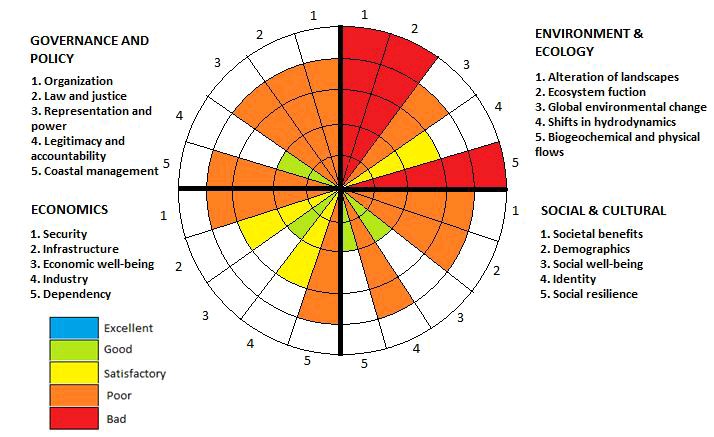Coastal zones are complex systems that provide important resources for human wellbeing, such as fish stocks, recreation, and protection against extreme events.
Starting with ourselves, many of us want to live near the coast and our dreamed travel list is full of coastal destinations with crystal clear waters. Economically, the tourism and maritime transport industries employ many people in countries such as Spain. Bio-based materials and components made from oceans’ species provide solutions from packaging to vaccines. Coastal zones are also the habitat of an incredible biodiversity.
At the same time, increasing challenges threat the health of our coasts and its species, whether these are connected to the overexploitation of resources, pollution, or climate change effects. With such diversity of interests and challenges, that often overlap, how to understand and manage effectively coastal zones and all the ecosystem services we benefit from?
To address this challenge, the Circles of Costal Sustainability (CCS) framework was created, linking and identifying the key elements that influence environmental sustainability and human wellbeing. It presents a holistic assessment of four interdependent boundary domains: Environment and Ecology, Social and Cultural, Economics, and Governance and Policy.
This approach improves its utility and usability for decision-makers and researchers and can be applied in different regions and scales.
The CCS was developed in collaboration with Future Earth Coasts, as part of the master’s research of FEC’s former intern and Erasmus Mundus in Water and Coastal Management alumni Natália Alencar, supervised by Dr Martin Le Tissier, Dr Shona Paterson and Dr Alice Newton.
The work was recently published and can be fully accessed here.

